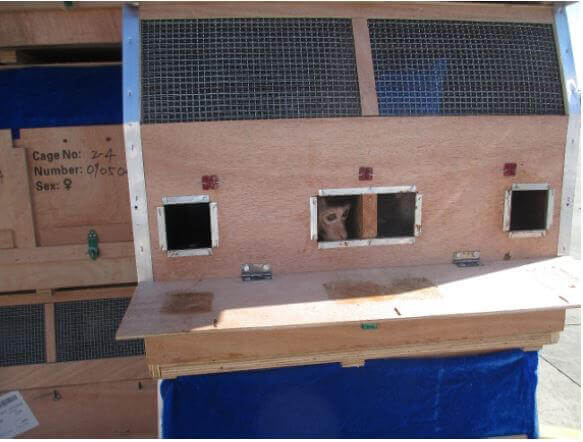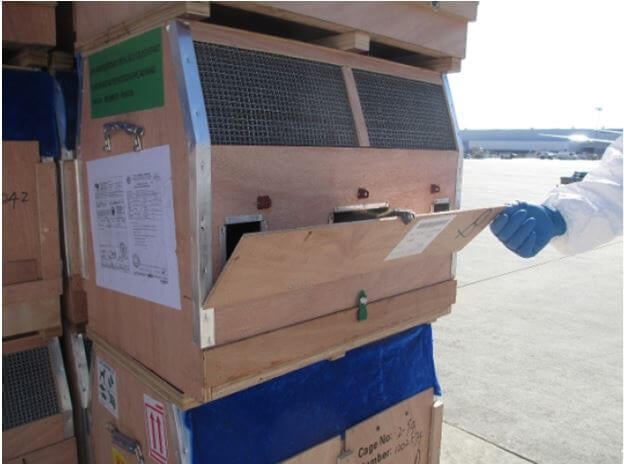Mercury Air: Monkeys Aren’t Cargo—Tell the Truth About Your Plans!
July 5, 2018, Update: Huge news—we won! Thanks to your thousands of calls and e-mails, AirBridgeCargo will no longer transport monkeys to laboratories anywhere in the world. The company has notified PETA that it has enacted this policy effective immediately.
AirBridgeCargo joins the long list of airlines—including American Airlines, United Airlines, Air China, China Eastern Airlines, China Southern Airlines, Delta Air Lines, El Al Airlines, Hainan Airlines, Philippine Airlines, Vietnam Airlines, and dozens of others—that refuse to participate in this sordid trade.
Update: You did it! Thanks to your e-mails and phone calls, AirBridgeCargo has notified PETA that it will not transport monkeys to Los Angeles International Airport (LAX) to be experimented on and killed in laboratories. Let’s keep pushing this company to do the right thing 100 percent of the time by ending its transport of monkeys anywhere in the world. Period.
We’ve received disturbing reports from multiple sources that AirBridgeCargo—under its parent company, Volga-Dnepr Group—will soon transport monkeys to Los Angeles International Airport (LAX) for use in laboratories. No monkeys destined for experimentation have been flown into LAX since PETA supporters persuaded China Southern Airlines to stop these cruel shipments.

Mercury Air Cargo, an air cargo handling company, will reportedly be handling the crates of monkeys on the ground at LAX after the planes arrive. When we contacted Mercury, it denied handling cargo for AirBridgeCargo. When we pointed out that the company had published a news release stating that it had signed a contract with AirBridgeCargo and asked again whether that meant that it would be handling monkeys as part of the agreement, the company went silent.
Mercury, come clean! Are you going to be complicit in transporting monkeys to laboratories?
In addition to our victory in the case of China Southern Airlines, PETA and our supporters have persuaded nearly every major airline in the world—including Air China, China Eastern Airlines, Philippine Airlines, and United Airlines—to stop transporting monkeys to laboratories.

Every year, thousands of nonhuman primates are transported from countries such as China, Mauritius, and Vietnam to the U.S. to be imprisoned in laboratories and tormented in experiments. Some are bred in captivity on cramped, squalid factory farms, while others are taken from their families in the wild. The traumatized monkeys are crammed into small wooden crates and transported in the dark and terrifying cargo holds of planes for as long as 30 hours.
Once the animals arrive in the U.S., they’re off-loaded from the planes by cargo-handling agents and left trapped in the cramped wooden crates (often filled with feces and urine), which sit on the tarmac or are carried with forklifts into a warehouse. These sensitive monkeys must then wait in fear until they’re loaded onto trucks and transported to infamous facilities such as SNBL and Covance, where greater horrors await. They’re imprisoned in tiny cages and often cut open, poisoned, crippled, addicted to drugs, shocked, and killed.

